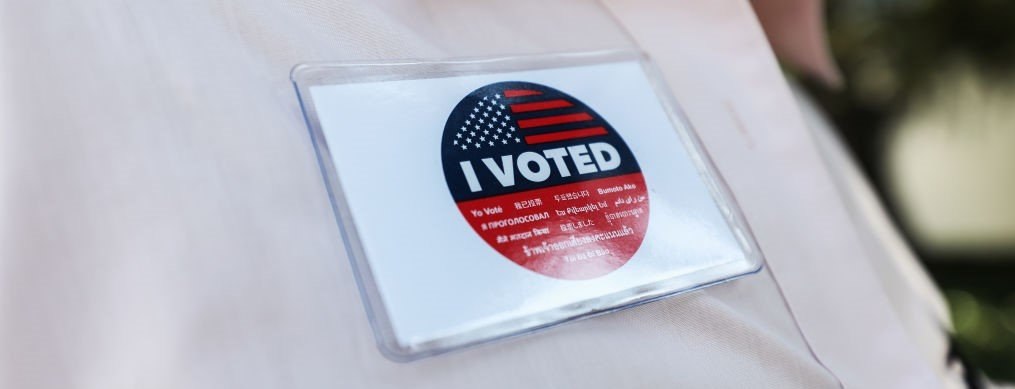American democracy isn’t faring especially well, according to registered voters in the latest Economist/YouGov Poll. While high election turnout is mostly thought of as good for democracy by voters in the poll, about one in three say they would want to restrict the franchise, believing that many citizens just aren’t smart enough to cast a ballot.
Thinking some Americans shouldn’t be voting is a bipartisan feeling, though slightly more of those who favor President Donald Trump than those supporting the Democrat, former Vice President Joe Biden, think this. More than four in ten Trump supporters (44%) believe some voters aren't smart enough to cast a ballot, and 31% of Biden supporters agree.
However, fewer than one in four voters (24%) think it would be a good idea to require Americans to pass a test before being allowed to vote.
There are differences in how Americans regard the act of voting that affect their answers to some of these questions. Is voting a right or a privilege? The answer could motivate those engaged in vote expansion (e.g., returning voting rights to felons who have served their time) and voting restriction (limiting participation to those former felons who have also paid any court fees or fines). Both of those electoral changes have resulted in court cases in Florida this year. In the poll, Democrats overwhelmingly view voting as a right; while Republicans also do, it is by a much narrower margin.
Those Republicans who mostly watch Fox News are almost evenly divided on this question.
Both Republican and Democratic voters are skeptical about this year’s election process, but the two voting groups have different doubts. The vast majority of Trump supporters believe illegal immigrants voted in 2016 and will try and do so again, and that mail ballots are being manipulated to favor Joe Biden. This could be a sign of trouble to come if the election result is disputed, as most voters who plan to vote by mail are Biden voters.
Meanwhile, nearly all Biden supporters (85%) say Russia is attempting to influence the election in favor of the President, and a majority (53%) are worried about the possibility that there will not be a peaceful transfer of power should the former vice president defeat President Trump.
One additional fear is shared by many voters for both candidates: a third of Biden voters and 43% of the President’s voters say it’s likely we will never know the real outcome of this election. Those are minority views, however. Most of both sets of voters don’t believe this will be the case.
Voter concerns, though different for Democratic and Republican voters, still raise questions about the future of American democracy. While most Americans believe that voting does matter – rejecting a claim that things go on pretty much the same no matter who wins – about half of voters on both sides agree that “We’re not a democracy.” That may impact the dissatisfaction they express about the way democracy is going in the United States. Only one in three are satisfied, while 62% are not.
Biden voters are particularly distressed with what is going on in the US, which is not surprising as there is a Republican in the White House. But so are nearly half of those who plan to vote to re-elect the incumbent President.
Satisfaction with democracy in the US has been declining since the 1990’s, according to the Pew Research Center’s global polling. The Economist/YouGov Poll finds registered voters expressing even less satisfaction than found in Pew research last year.
Methodology: The Economist survey was conducted by YouGov using a nationally representative sample of 1,500 registered voters interviewed online between October 11 - 13, 2020. This sample was weighted according to gender, age, race, and education based on the American Community Survey, conducted by the US Bureau of the Census, as well as 2016 Presidential vote, registration status, geographic region, and news interest. Respondents were selected from YouGov’s opt-in panel to be representative of all US citizens. The margin of error is approximately 4% for the overall sample.
Image: Getty









